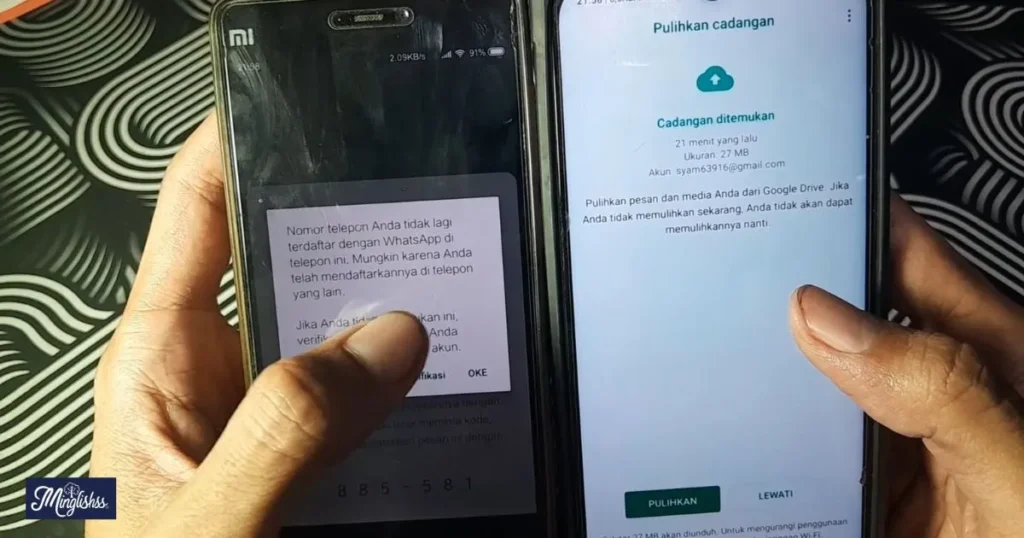“Polished communication begins with thoughtful expressions.”
Clear and effective communication is essential, especially when confirming important details. While “just to confirm” is a go-to phrase, overusing it can make your conversations feel monotonous or less engaging. By exploring other ways to convey the same message, you can make your interactions stand out and appear more thoughtful.
Using alternative phrases doesn’t just add variety; it also enhances your communication style. It helps you connect better with your audience, whether you’re following up on a meeting, clarifying plans, or verifying instructions. The right phrase can set a positive tone and ensure there’s no room for misinterpretation.
In this blog, we’ll explore 35 creative and professional alternatives to “just to confirm.” These phrases will not only keep your language fresh but also help you convey your message clearly and effectively in a range of scenarios.
1. “I want to ensure we’re on the same page.”
Scenario:
Julia emails her project manager to confirm the final deadline.
Subject Explanation:
This phrase conveys a sense of collaboration and alignment. It works well in professional settings where teamwork and clarity are important.
Additional Tip:
Pair this with a brief recap of what you understand, making it easier for the recipient to verify details.
2. “Could you clarify this for me?”
Scenario:
Ethan reaches out to his supplier to confirm delivery dates.
Subject Explanation:
This alternative is polite and professional. It encourages the other person to provide details, ensuring clear communication.
Additional Tip:
Use this phrase when you feel the need for a little extra explanation or context.
3. “Am I understanding this correctly?”
Scenario:
Sophia follows up with her professor about an assignment guideline.
Subject Explanation:
This question helps verify your understanding without sounding demanding. It’s a respectful way to double-check details.
Additional Tip:
This works well in academic or professional emails where mutual understanding is critical.
4. “Let’s confirm these details together.”
Scenario:
Liam discusses event logistics with a colleague.
Subject Explanation:
This expression sounds collaborative and is perfect for team settings. It invites shared responsibility for the accuracy of information.
Additional Tip:
Use it during team meetings or when coordinating group tasks.
5. “Can you verify this information for me?”
Scenario:
Maya contacts a client to ensure the shipping address is correct.
Subject Explanation:
This phrase is formal and straightforward, making it ideal for business emails.
Additional Tip:
Include specific details in your request to avoid back-and-forth exchanges.
6. “I’m checking in to confirm.”

Scenario:
Oliver calls a friend to double-check their weekend plans.
Subject Explanation:
This phrase is casual and friendly, suitable for personal conversations or semi-formal emails.
Additional Tip:
Use it when you want to maintain a light, conversational tone while ensuring clarity.
7. “Can we align on this?”
Scenario:
Emma and her marketing team finalize campaign strategies.
Subject Explanation:
This phrase emphasizes collaboration and precision, making it great for professional discussions.
Additional Tip:
Use this when discussing multi-step projects or tasks that involve multiple parties.
8. “Just seeking clarity here.”
Scenario:
Lucas emails his mentor to confirm a meeting time.
Subject Explanation:
This phrase is informal yet respectful. It conveys your intention to avoid misunderstandings.
Additional Tip:
It’s perfect for quick follow-ups or when you need a simple yes-or-no confirmation.
9. “Could we revisit this point?”
Scenario:
Amelia revisits contract terms with her legal advisor.
Subject Explanation:
This phrase encourages reviewing details for accuracy, especially in high-stakes or formal scenarios.
Additional Tip:
Use this during negotiations or when finalizing agreements to ensure no detail is overlooked.
10. “Let’s make sure everything is correct.”
Scenario:
Ethan and his team review a product launch plan.
Subject Explanation:
This collaborative phrase works well in team environments. It reflects thoroughness and attention to detail.
Additional Tip:
Pair it with a checklist or summary to streamline the confirmation process.
11. “Does this match your understanding?”
Scenario:
Sophie verifies meeting notes with her colleague after a call.
Subject Explanation:
This is a polite and open-ended way to confirm details, inviting feedback or corrections.
Additional Tip:
It’s useful for conversations involving multiple viewpoints or interpretations.
12. “Is this accurate?”
Scenario:
Ryan asks his accountant to verify a financial report.
Subject Explanation:
This short and direct phrase is ideal for quick confirmations in professional settings.
Additional Tip:
Use this when precision is essential, such as in numbers or specific data.
13. “Can you confirm this for me?”
Scenario:
Megan emails her service provider to double-check the time for a scheduled maintenance visit.
Subject Explanation:
This phrase is straightforward and respectful, making it suitable for formal or semi-formal interactions.
Additional Tip:
This is a great choice when you want to emphasize the importance of the details being checked.
Other Ways to Say “Let Me Know If You Have Any Comments”
14. “I’d like to double-check with you.”
Scenario:
Noah contacts a supplier to confirm the quantity of items being shipped.
Subject Explanation:
This phrase conveys thoroughness and responsibility, showing your commitment to avoiding errors.
Additional Tip:
Pair this with specific questions to make the confirmation process quick and efficient.
15. “Please let me know if this is correct.”
Scenario:
Olivia sends an itinerary to a travel agent and asks for confirmation.
Subject Explanation:
This polite and clear phrase works well for written communication, especially when you need a direct response.
Additional Tip:
Use it in emails or texts to avoid confusion while giving the other person a chance to verify the information.
16. “Is this what you had in mind?”
Scenario:
James checks with a designer to confirm the concept for a new project.
Subject Explanation:
This phrase reflects a collaborative tone, ideal for creative or brainstorming discussions.
Additional Tip:
It encourages open feedback, making it easier to make adjustments if needed.
17. “Can you validate this for me?”
Scenario:
Emma asks her finance team to confirm figures in a monthly report.
Subject Explanation:
This phrase is professional and precise, often used in technical or formal contexts.
Additional Tip:
Use this when working with data or critical details to avoid miscommunication.
18. “Let’s ensure we’re on the right track.”
Scenario:
Liam confirms the goals of a project with his team during a status meeting.
Subject Explanation:
This collaborative phrase fosters teamwork and a shared sense of responsibility.
Additional Tip:
Incorporate this phrase in team settings to maintain alignment and boost morale.
19. “Am I correct in understanding this?”
Scenario:
Sophia follows up with a vendor to clarify terms of a service agreement.
Subject Explanation:
This polite question is an effective way to confirm your interpretation of information without imposing.
Additional Tip:
It’s helpful in complex situations where details might be misunderstood.
20. “Could we verify this together?”
Scenario:
Ryan asks his HR manager to confirm the onboarding process steps for a new hire.
Subject Explanation:
This phrase emphasizes mutual effort in ensuring accuracy, making it suitable for professional collaborations.
Additional Tip:
Use this in scenarios where teamwork is key, showing your commitment to clear communication.
21. “I’m reaching out to confirm.”
Scenario:
Maya emails a client to finalize the details of a scheduled meeting.
Subject Explanation:
This phrase is versatile and works in both formal and informal contexts. It directly states your purpose.
Additional Tip:
Add a brief summary of what you’re confirming to provide clarity and context.
22. “Is this aligned with your expectations?”
Scenario:
Oliver shares a draft of a marketing strategy with his boss.
Subject Explanation:
This phrase shows thoughtfulness and a willingness to adapt, making it perfect for professional feedback discussions.
Additional Tip:
It works well in situations where you need approval or suggestions for improvement.
23. “Just wanted to verify this detail.”
Scenario:
Emily checks with her event planner to confirm the venue’s capacity.
Subject Explanation:
This light and casual phrase is ideal for conversations where a friendly tone is appropriate.
Additional Tip:
Keep it short and sweet when dealing with routine confirmations.
24. “Can you let me know if this works for you?”
Scenario:
Ethan suggests a new meeting time to his colleague and asks for confirmation.
Subject Explanation:
This phrase is polite and flexible, giving the recipient room to agree or suggest changes.
Additional Tip:
It’s great for scheduling or when flexibility is needed in decision-making.
25. “Does this look right to you?”

Scenario:
Sophie shares her presentation with a team member for review.
Subject Explanation:
This casual phrase is perfect for informal settings or when asking for a second opinion.
Additional Tip:
Use it when you need feedback or confirmation on creative work.
26. “Let me confirm this with you.”
Scenario:
Liam discusses shipping details with a logistics company.
Subject Explanation:
This phrase shows initiative, making it ideal for situations where you want to appear proactive.
Additional Tip:
It works well in customer service or follow-up emails.
27. “Can I double-check this with you?”
Scenario:
Amelia asks her team leader to confirm the deliverables for a project.
Subject Explanation:
This friendly and collaborative phrase encourages a positive response.
Additional Tip:
It’s useful in situations where you’re verifying multiple details at once.
28. “Please confirm if this is correct.”
Scenario:
Lucas emails a vendor to verify an invoice amount.
Subject Explanation:
This direct and professional phrase gets straight to the point.
Additional Tip:
Add a specific reference or attachment to make the confirmation process more efficient.
29. “Would you mind confirming this for me?”
Scenario:
Megan asks her professor to verify a lab schedule update.
Subject Explanation:
This polite request works well in formal or academic contexts.
Additional Tip:
It’s a respectful way to approach someone for confirmation when they’re in a higher position.
30. “Can you give me a quick update on this?”
Scenario:
James asks his coworker to confirm the status of a report.
Subject Explanation:
This phrase is casual and conversational, suitable for quick follow-ups.
Additional Tip:
It’s ideal for scenarios where you’re seeking a brief confirmation rather than an in-depth explanation.
31. “Let’s review this to make sure.”
Scenario:
Emma and her partner finalize a business proposal together.
Subject Explanation:
This phrase encourages thoroughness and teamwork, especially in joint projects.
Additional Tip:
Use it when accuracy is critical to avoid future misunderstandings.
32. “Do we have the same understanding?”
Scenario:
Ryan discusses budget allocations with his finance team.
Subject Explanation:
This phrase ensures alignment and clarity between all parties involved.
Additional Tip:
It’s helpful in meetings or discussions where misinterpretation could lead to costly errors.
33. “Is everything clear from your side?”
Scenario:
Olivia checks with a new hire to confirm the onboarding process.
Subject Explanation:
This phrase reflects consideration and thoroughness, ensuring all aspects are covered.
Additional Tip:
It’s a thoughtful way to confirm details while considering the other person’s perspective.
34. “Can we go over this one more time?”
Scenario:
Noah and his event coordinator review the itinerary for a conference.
Subject Explanation:
This phrase is useful for situations requiring a final review before execution.
Additional Tip:
Use it when finalizing important plans to avoid last-minute surprises.
35. “Does this work for you?”
Scenario:
Julia proposes a change in meeting time to her team and seeks their input.
Subject Explanation:
This friendly and flexible phrase invites collaboration and ensures agreement.
Additional Tip:
Pair it with options to make decision-making easier for the recipient.
Pros and Cons
Pros
- Enhanced Professionalism: These phrases elevate your communication by adding variety and precision.
- Clarity: Specific phrases reduce the chances of miscommunication.
- Tone Flexibility: Adaptable for formal and informal scenarios.
Cons
- Overcomplication Risk: Too many options might confuse some people.
- Context Sensitivity: Some phrases may not fit every situation.
Conclusion
Expanding your vocabulary with these alternatives to “just to confirm” adds richness to your communication. By selecting the right phrase for the right situation, you ensure clarity, professionalism, and engagement.
Whether you’re writing an email, leading a meeting, or following up on a task, these phrases will keep your conversations efficient and impactful. Use them confidently to elevate your communication style!

Hi, I’m Isabel: I’m passionate about turning language learning into a fun adventure. I believe in making every word exciting and memorable.










